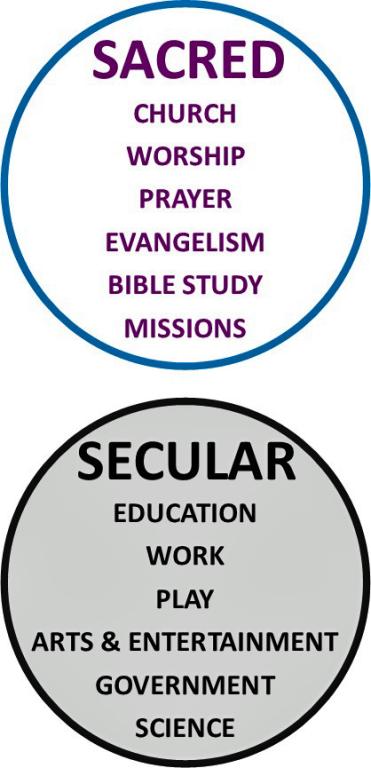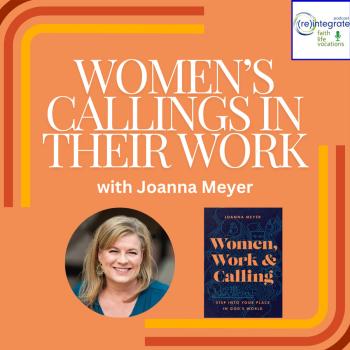I often joke that I went into ministry because I understood that there would be no math.
So, if my calculations are wrong, blame Google because that’s where I got this number…
There are 168 Hours in a week.
I often do this thought exercise with people: If we were to chart the number of hours that we devote to the various things we do every week, how many hours are given to each task?
Let’s say we average about 50 hours per week sleeping (Some of you are saying, “I wish I had 50 hours per week of sleep!”)
We also spend a lot of time at work – an average of 55 hours per week.
We spend the rest of our waking hours doing a myriad of activities: We spend time eating, we are always doing household activities like cleaning and cooking, we go shopping, we care for other people, we and/or our children participate in sports, we watch TV and play games, we have hobbies, some of us go to school and do homework.
And we also do our peculiarly Christian things: We go to church, we spend times in prayer and reading the Bible, we participate in a small group, and we volunteer in ministries and community service.
So, these numbers obviously will be different for different people, but for the sake of our thought-exercise, let’s just say we spend our 168 Hours Per Week like this:
(1) Sleep: 50
(2) Work: 55
(3) A myriad of daily activities, from eating, to shopping, to watching TV: 59
(4) Christian activities: 4
How Many Hours are Meant to Be Spiritual?
Here is the trick question (some of you already know where I’m going with this):
How many hours per week are you devoting to God? Or, How many hours per week do you view as your sacred hours and how many as your secular hours?
When we look at the numbers, at first it seems that only 4 out of 168 hours are sacred hours (or about 2.4% of our week).
So, if that’s the case, we better either increase those hours or get the most from those hours! Go to church on Sunday night and Wednesday night too. Go to a second Small Group, Volunteer more with church activities. Or at least listen more intently to the preacher and take good notes and stop falling asleep during quiet times when you’re trying to pray!
I’ve even heard pastors heap the guilt on their people: “Why are you spending so much time and energy at your job or doing things you think are fun when what really matters is what we do here at the church?”
Sacred-Secular Dualism Destroys Our Integrity
This is a false Sacred-Secular Dualism that places much of our everyday lives in a category that is devoid of God.
Brian Walsh and J. Richard Middleton explain,
“Dualism is a split-vision world-view. It separates reality into two fundamentally distinct categories: holy and profane, sacred and secular… In the place of a biblical understanding of the kingdom of God as God’s rule over all creation, the kingdom is identified with what has been called our spiritual life.” (The Transforming Vision: Shaping a Christian World View)

This split-vision view limits the “spiritual life” to things like prayer, Bible study, church attendance, evangelism, etc.
All the rest of our lives are relegated to a secular category that can only be God-honoring if we do activities deemed “sacred” while doing them. So, I can make my work sacred only by evangelizing my co-workers. I can make my housecleaning sacred by listening to worship songs while I do it.
With this thinking, we begin to believe that only those in “full-time Christian ministry” (like pastors and missionaries) actually spend most of their time doing what really matters. We are second-class Christians since we mistakenly think our Christian activities make up only 2% of our lives.
This causes us to become dis-integrated. God made all things to be sacred, and we were made to be integrated, where every aspect of who we are and what we do is redeemed and given to God as an act of worship, as an offering to God (see Romans 12:1).
If Jesus isn’t Lord of all, then he is not Lord at all.
A New Paradigm: All Things are to be Sacred.
So, instead of trying to increase the 4 hours up to 5 or 6, why don’t we instead commit all 168 hours to God?
What does it look like to have sacred sleep? What is spiritual about rest and how do we take seriously our need to be refreshed by it?
What does it look like to have sacred work? How would the work, in and of itself, change if I were to think, “This work is meant to advance God’s desire for people to flourish.” “This work needs to change in some ways to bring redemption and justice to the world.” “This work is the means by which I participate with God’s mission to restore the fallen world.”
What does it look like to see all of life as sacred? How does that affect what I choose to eat? How I view serving my family by doing household chores? How I make decisions when purchasing things? How I play sports and games? What and how I watch TV? Why I study for school?
So, here is our takeaway: What must I do to intentionally reintegrate all 168 hours of my week into the Kingdom of God?













